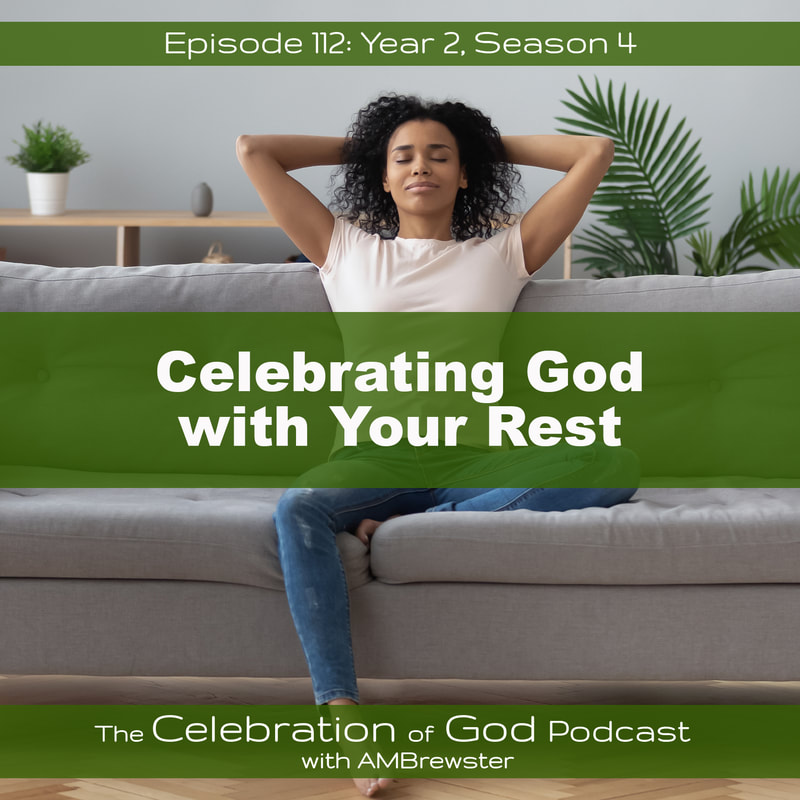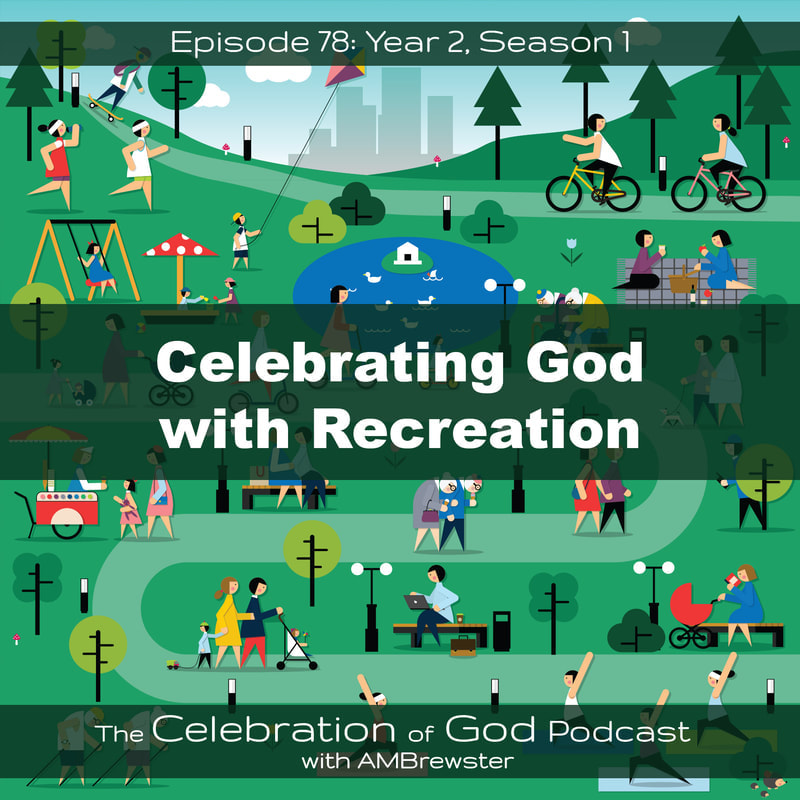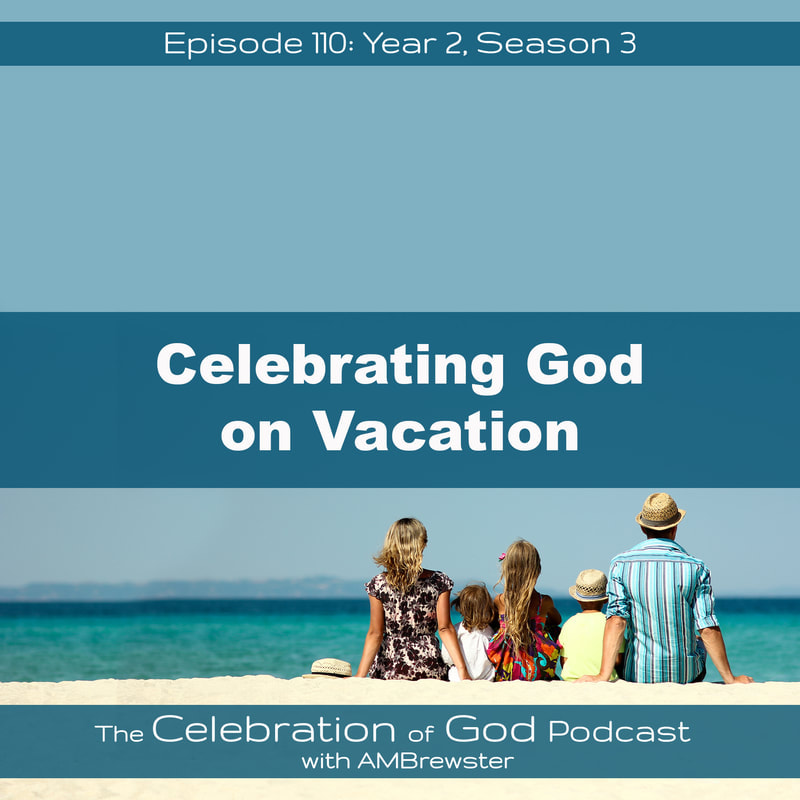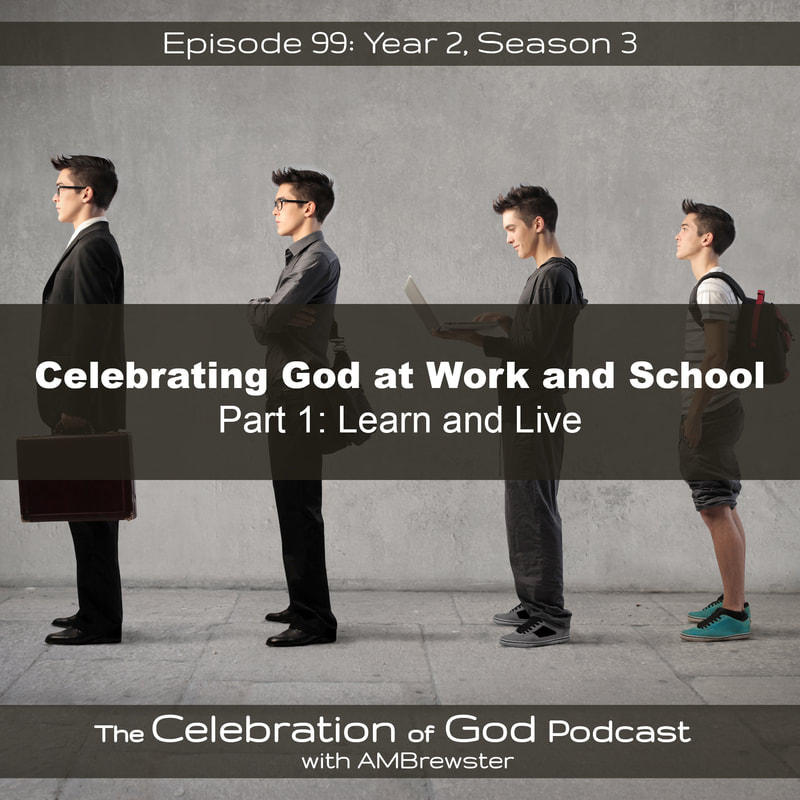Are you new to the Celebration of God? Click here for your first steps.Episode Notes
Click the link below to download the PDF.
TranscriptIntroduction
This is a topic I’ve been waiting for a long time to tackle, but I’m still approaching it with great trepidation because it’s such a hugely significant topic. I want to do it justice, but I also know that I can’t do it justice . . . especially on a podcast.
But we need to do it whatever justice we can. So, over the next three weeks we’re going to begin a conversation that I hope to build on many more times in the future. So far we’ve hinted at it, we’ve talked around it, and we’ve even made partial comments about it, but I really look forward to taking it to the next level. I pray our free episode notes, transcripts, and celebration resources will also help you as you work to better know, understand, and live in the reality of of this glorious truth. And for those of you who didn’t catch the title of today’s show and have no idea what I’m talking about, we’re discussing Celebrating God with Your Rest. We’ve talked about celebrating God at church, at work, and at school. We’ve talked about using death to celebrate God. And we’ve talked about celebrating Him with your vacation, recreation, and your food and drink. So, it’s definitely time to add rest to the list, and . . . while we’re at it, even talk about sleep. Topic
So, let’s start with the easier of the two. Is it possible to please or displease the Lord when you’re asleep?
You’ve probably heard me say a number of times on this show that God deserves our worship every waking hour of the day. But we’ve never talked about the worship He’s due when we’re sleeping or what that would even mean for us. So . . . 1. Celebrating God with Your Sleep Whether I’m awake or not, I know that my God is still worthy of preeminence. Colossians says that He should have preeminence in all things; and yes, that includes my sleep. A. We please God with our sleep when we recognize that He is the one Who provides it. Psalm 127:2 reads, “It is in vain that you rise up early and go late to rest, eating the bread of anxious toil; for he gives to his beloved sleep.” Now, I’m not saying that unbelievers don’t sleep well, but I am saying that God is not pleased by their sleep because they consider it an act of chance or of their own doing. Are you thankful to God for your sleep? As you go to bed tonight or wake in the morning, take some time to thank the Lord for the rejuvenating sleep He provides. B. We please God with our sleep when we trust Him as we go to sleep. In Psalm 3, David starts by explaining how his adversaries were increasing and taunting him and how he cried out to the Lord, but then in verse 5 he writes, “I lay down and slept; I awoke, for the Lord sustains me.” Psalm 4:8 tells us, “In peace I will both lie down and sleep, for You alone, O Lord, make me to dwell in safety.” Psalm 37:7 says, “Rest in the Lord and wait patiently for Him; Do not fret because of him who prospers in his way, Because of the man who carries out wicked schemes.” Now, contrast this with the night Darius realized he had condemned Daniel to the lion’s den. Daniel 6:18 tells us, “Then the king went off to his palace and spent the night fasting, and no entertainment was brought before him; and his sleep fled from him.” Darius didn’t know the Lord. He didn’t trust for sure that Daniel’s God would preserve Daniel. That’s why, in verse 20, he cried into the den, “Daniel, servant of the living God, has your God, whom you constantly serve, been able to deliver you from the lions?” How many of us are like Darius, fretting about things over which we have no control when we should be sleeping? As you go to sleep tonight, you can please the Lord by thanking Him for sovereignly doing all the things you never really had control of anyway. This includes things like keeping your heart beating and your lungs pumping, but it also includes protecting you, your family, and your home, keeping the world spinning, and so much more. C. We please God with our sleep when we sleep at the right times. The Bible says that you can sleep too much if you’re lazy. Proverbs 20:13 says, “Do not love sleep, or you will become poor.” And Proverbs 6:9 asks, “How long will you lie down, O sluggard? When will you arise from your sleep?” Though sleep itself is amoral, the oversleep of sluggards doesn’t please the Lord because the reason for their sleep doesn’t please Him. The Bible also illustrates that you can sleep at the wrong times. Matthew 26 is very interesting in that the disciples chose to sleep when they should have been praying. And it’s also very interesting to realize that the Bible provides many examples of people who didn’t get enough sleep simply because they chose to be awake and sinning instead. I Thessalonians 5:7, “For those who sleep do their sleeping at night, and those who get drunk get drunk at night.” Proverbs describes how adulterers also use the night to veil their sinful deeds, and John 3:19 explains that “This is the judgment, that the Light has come into the world, and men loved the darkness rather than the Light, for their deeds were evil.” This is just as true when it comes to physical darkness and light as it is with spiritual darkness and light. Take careful stock of your sleep patterns. Do they glorify God? Is He pleased with the amount of your sleep and the timing of your sleep? And finally, when it comes to sleep . . . D. We please God with our sleep when we please Him with our waking. Proverbs 3:21-24, “My son, let them not vanish from your sight. Keep sound wisdom and discretion, 22 So they will be life to your soul And adornment to your neck. 23 Then you will walk in your way securely And your foot will not stumble. 24 When you lie down, you will not be afraid; When you lie down, your sleep will be sweet.” Living wisely leads to sleeping wisely. So, yes, my friends, God deserves our worship every waking moment of the day. But it’s in those waking moments that we become the people whose sleep also pleases the Lord. Alright, so that was sleep. That includes napping and any other time we’re unconscious. But what about . . . . 2. Celebrating God with Your Rest. Rest is a big topic that covers many states of mind and body. Therefore, for this topic, we must start at the beginning. On our Celebrating God on Vacation episode I referenced Genesis 2. Let’s go back there for a minute. Genesis 2:1-3 reads, “Thus the heavens and the earth were completed, and all their hosts. 2 By the seventh day God completed His work which He had done, and He rested on the seventh day from all His work which He had done. 3 Then God blessed the seventh day and sanctified it, because in it He rested from all His work which God had created and made.” And we made these observations: A. God did not need to rest. Instead . . . B. God rested from His work on the last day of the week as an example of healthy rhythms for His creation. And . . . C. God also rested to symbolize the experience of faith in Him. The first observation doesn’t need too much detail, but God obviously did not need to rest because He is never fatigued. He never needs to catch His breath or regain His strength. However, let’s consider the second and third observations in more detail. God rested from His work on the last day of the week as an example of how His creation was supposed to live, and God rested to symbolize the experience of faith in Him. If this were the only time in the Bible that we heard about God resting, then there would be a lot of unanswered questions. Thankfully, though, the Scriptures repeatedly reference this event and explain to us the meaning behind it. For example, in Exodus 20:8-11 we read, “Remember the sabbath day, to keep it holy. 9 Six days you shall labor and do all your work, 10 but the seventh day is a sabbath of the Lord your God; in it you shall not do any work, you or your son or your daughter, your male or your female servant or your cattle or your sojourner who stays with you. 11 For in six days the Lord made the heavens and the earth, the sea and all that is in them, and rested on the seventh day; therefore the Lord blessed the sabbath day and made it holy.” And a similar explanation appears in Exodus 31:17. God ordained that the Children of Israel would have a cycle of work and rest every day and every week. Every day they would wake and sleep, but then every week they would work for six and rest for one. That’s not to say they would sleep for one full day, but God expected them to cease from labor. That’s was rest means. It means to take a break from something, and — in this context — it’s taking a break from work. Now, on our next episode we’re going to talk about whether modern Christians have any responsibility to “keep the Sabbath.” For now, though, we need to see that when God rested on the seventh day, He was not resting for His own benefit; He was resting for ours. He was setting a precedent for physically and spiritually healthy rhythms. Just like the Jews, we must sleep every 24 hours or suffer intense and even fatal consequences. And also just like the Jews, there are numerous health benefits to taking a break from our work. Now, I’m not going to get into all of the science right now. But here’s the thing, sleep science and work science and exercise science verify the reality that bodies, minds, relationships, and overall wellness thrives when they’re allowed to rest one day in seven. So, yes, God rested on the seventh day in order to teach mankind an important lesson about their physical wellbeing, and it can be argued that the physical benefits of rest are exceptionally important to God. For example, as we’ve observed in the past, in Mark 6:31, when the disciples returned from their first evangelistical journey, Jesus said, “Come away by yourselves to a secluded place and rest a while.’ (For there were many people coming and going, and they did not even have time to eat.) 32 They went away in the boat to a secluded place by themselves.” Many times Jesus invited and even pushed people to rest. It was Jesus Himself Who designed us to need sleep. He designed us to flourish when we have cycles of work and rest, and we can celebrate Him with our rest when we submit to those cycles in order to please Him. But second, God also rested on the seventh day to symbolize the experience of faith in Him. And as we cycle through those rhythms, our minds should be weekly drawn to the reality of rest in Christ. Now, the Old Testament is not the only place where the Bible references God resting. Let’s look at Hebrews chapter 3. Starting in verse 12 we are warned not to provoke God the way the Children of Israel did. In verse 18 and 19 we read, “And to whom did He swear that they would not enter His rest, but to those who were disobedient? 19 So we see that they were not able to enter because of unbelief.” Even though the Children of Israel would have to work hard to capture and cultivate the Promised Land, God is illustrating the blessing of entering the land as rest. It’s the blessing of obeying God. But the nation disobeyed God, and so they were not allowed to experience the blessing of God. They weren’t allowed to enter His rest — the Promised Land. With that as the backdrop, the author then starts chapter 4 with, “Therefore, let us fear if, while a promise remains of entering His rest, any one of you may seem to have come short of it. 2 For indeed we have had good news preached to us, just as they also; but the word they heard did not profit them, because it was not united by faith in those who heard. 3 For we who have believed enter that rest.” Okay, so in the Good News — the Gospel — we too have received promises. And we need to believe that word in such a way that it profits us — namely that it produces Christlikeness in us. And if we have truly been born again — and subsequently conformed to the image of Christ — we too have a future rest to which we look forward. Then in verse 4 the author of Hebrews references that God rested on the seventh day from all His work and ties that event to the Israelites who weren’t allowed to enter the promised land because of their unbelief. Now, let’s jump to verses 8-11. “For if Joshua had given them rest [referring to when Joshua lead the obedient people into the Promised Land], He [speaking of God] would not have spoken of another day after that.” What is this other day? Verse 9 continues, “So there remains a Sabbath rest for the people of God. 10 For the one who has entered His rest has himself also rested from his works, as God did from His. 11 Therefore let us be diligent to enter that rest, so that no one will fall, through following the same example of disobedience.” Now, these verses are all too foreign to too many Christians, which is sad for many reasons. The key we need to grasp here today is that when God rested from Creation, He was giving us a picture of the believer’s relationship with God. We’re born into this world that — because of the fall — involves thorns and sweat and toil, but that will all one day end, and we will enter the rest God has promised. But even though the verses I just read are unfamiliar to many Christians, what’s interesting is that the next few verses are very familiar to most. "For the word of God is living and active and sharper than any two-edged sword, and piercing as far as the division of soul and spirit, of both joints and marrow, and able to judge the thoughts and intentions of the heart. 13 And there is no creature hidden from His sight, but all things are open and laid bare to the eyes of Him with whom we have to do.” These very popular and beautiful verses were written within the context of a conversation about God’s seventh-day rest as a picture of the future rest God is preparing for those who believe in Him. The point of these more well-known verses about the Word of God is that the Scriptures perfectly discern whether or not we believe God, whether or not we’re truly obeying God, and whether or not we will enter His rest. Then the chapter ends with another set of very familiar verses about Jesus being our High Priest who understands our weaknesses. And it encourages us to “draw near with confidence to the throne of grace, so that we may receive mercy and find grace to help in time of need.” To what end? For the goal of believing God, obeying God, and entering into His rest. Jesus promised that He was going to prepare a place for us and then return to collect us unto Himself. Eternity with God is the spiritual fulfillment of the final day of Creation. We will finally have eternal rest from the curse. We will have eternal rest from sickness and pain and death. And — most beautifully — we will have eternal rest from sin. We will be able to flourish in perfection with God for all eternity! And we definitely should celebrate God by praising Him for those future realities. But what about our present rest? Consider Matthew 11:28-30, “Come to Me, all who are weary and heavy-laden, and I will give you rest. 29 Take My yoke upon you and learn from Me, for I am gentle and humble in heart, and you will find rest for your souls. 30 For My yoke is easy and My burden is light.” This is a concept we’re going to talk more about later, but I wanted to introduce it here. Our weekly and daily times of rest are designed to be physically refreshing, and they’re also designed to picture the future glory of eternal rest with our God, but they’re also designed to provide much needed spiritual refreshment in the here and now. Now, I’m not saying that the promises of Matthew 11:28 refers only the dedicated times where we stop working and put our feet up. God can and does provide soul rest even in the midst of trial and work and persecution. But we know that God deserves our worship and praise every moment of the day, and that definitely includes our rest and relaxation. Are you weary physically? Are you heavy-laden spiritually? Christ wants you to rest on Him. Take His yoke on you, learn from Him. Jesus is gentle and humble in heart; He is divinely happy to condescend to us and give us the rest we need. His yoke is easy. His burden is light. In this passage, Jesus quotes from Jeremiah 6:16, "Thus says the Lord, ‘Stand by the ways and see and ask for the ancient paths, Where the good way is, and walk in it; And you will find rest for your souls. But they said, ‘We will not walk in it.’” We find rest when walk the paths God’s prepared for us — in His holiness, in His righteousness. But He also gives us the choice to refuse Him. When we rest in ways that don’t please the Lord, when we rest for our own honor and glory, we are refusing to walk in the paths He’s set, and our rest will not satisfy like it could. Conclusion
Please allow me to bring today’s discussion to a close by reading Revelation 14:11-13.
Referring to the those who worship the Beast during the Tribulation period, John writes, “And the smoke of their torment goes up forever and ever; they have no rest day and night, those who worship the beast and his image, and whoever receives the mark of his name.” Our rest will never do the physical and spiritual jobs God intends if we do not put Him first. Those who reject Him in this life will not only experience unsatisfying rest in the here and now, they will also experience a restless eternity. But then verses 12-13 say, “Here is the perseverance of the saints who keep the commandments of God and their faith in Jesus. 13 And I heard a voice from heaven, saying, ‘Write, ‘Blessed are the dead who die in the Lord from now on!’’ ‘Yes,’ says the Spirit, ‘so that they may rest from their labors, for their deeds follow with them.” God’s people need to live in the reality of the future rest He’s promised. They need to allow their temporal rest to draw them to praise the Lord for their future, eternal rest. But we also need to understand the very real and practical plans that God has for our temporal rest. He wants it to rejuvenate us physically. He wants it to refresh us spiritually. But how is that done? How do we take our physical rest and use it to benefit our spirits? Well, I hope to discuss all of those practical realities in the next couple episodes. So, since this is such a Bible-spanning topic that affects all people, please share this episode on your favorite social media outlets so that disciples of Christ can better learn to celebrate God with their rest. And join us next time as we seek to better know, love, and worship God and help the people in our lives do the same. To that end, we’ll be answering the question “Are Christians Required to Observe the Sabbath?” I’ll see you then.
0 Comments
Leave a Reply. |
The Year Long Celebration of God is a dynamic, holistic resource that utilizes the Bible, our holiday calendars, and even the most average moments of the most normal days to equip Christians to worship God all year long
and disciple others to do the same. AMBrewster is the creator and host of the Celebration of God. He originally designed the COG to be a discipleship tool for Christian parents to train their children to know and love God, but he quickly realized how valuable it is for all Christians. Whether it's a small group, church, classroom, one-on-one, or community relationship, this resource is guaranteed to draw people closer together as they draw closer to God. Aaron is the President of Truth.Love.Parent. and host of its podcast. Archives
July 2022
Categories
All
|
||||||||
Truth.Love.Family.
- Truth.Love.Family.
- Donate
-
Podcast
-
Special Guests
>
- Ryan & Kim Ahrens
- Scott & Becky Aniol
- George Barna
- Dave Bender
- Alan Benson
- Carolyn Brewster
- Tim Challies
- Natasha Crain
- Kristen Clark
- Hillary Morgan Ferrer
- Todd Friel
- Ken Ham
- Jay Holland
- Kristen Jenson
- Chris Kaspar
- Becky Keife
- Heath Lambert
- Jessica Mair
- Dr. Joe Martin
- Mark Massey
- Katie Miller
- Jim Newheiser
- Steve Pettit
- Shannon Popkin
- Aaron & Elaina Sharp
- Mark Shaw
- Lynna Sutherland
- Nathan & Anna Sutherland
- Brandon Talley
- Arthur C. Woods
- Episodes by Series
- Episodes by Topic
- Where to Listen
-
Special Guests
>
- Community
-
Resources
- Counseling
- Speaking
- The Celebration of God
- AMBrewster.com
- Evermind Store
We are a participant in the Amazon Services LLC Associates Program. As an Amazon Associate, we earn from qualifying purchases. Click any Amazon link at TruthLoveParent.com, shop as usual, and TLP will receive commissions off all of your sales! Click here to learn more.
Site powered by Weebly.







 RSS Feed
RSS Feed
